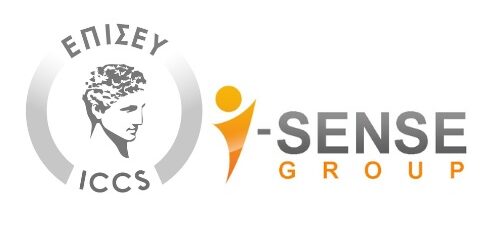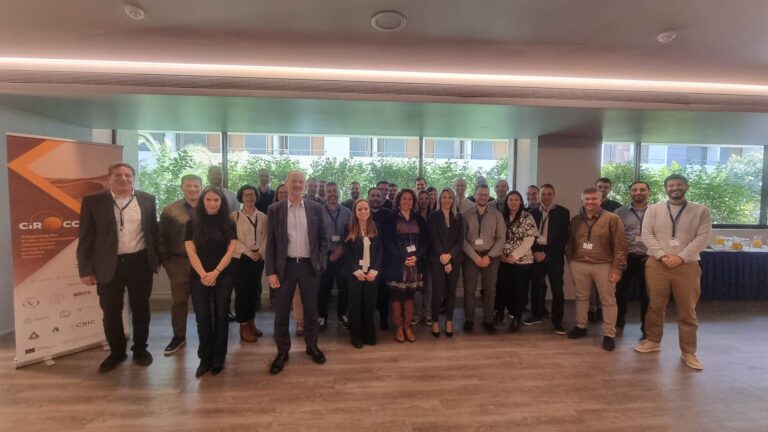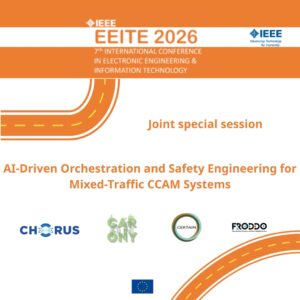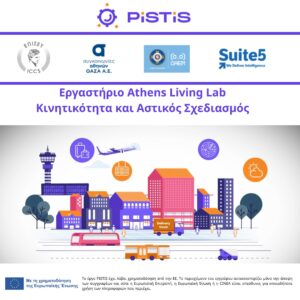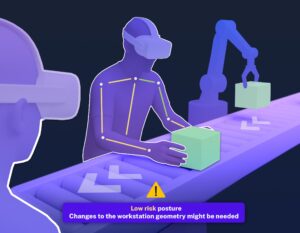CiROCCO (Enhancing the In-situ Environmental Observations across Under-sampled Deserts) is coordinated by the Institute of Communication & Computer Systems (ICCS) in Greece and involves 12 organisations from 4 EU members (Greece, Cyprus, Spain, and Luxembourg) and 3 non-EU countries (Switzerland, Egypt, and Serbia). The project kicked-off in Athens on 20-21 March 2023.
With its international consortium and strong leadership, the project is well-positioned to make a significant contribution to improving ground observation in desert areas and enhancing climate change models. CiROCCO’s vision is to establish an end-to-end sensing system, composed of a distributed network of cost-effective sensing nodes coupled with state-of-the-art data fusion remote sensing and assimilation modelling techniques. The network of sensors will enhance the current lack of ground observation in desert areas, offering an operational and easy-to-maintain-and-expand solution. The installation’s sustainability will be ensured by commercialisation services, and the findability, accessibility, interoperability, and reusability (FAIR) management of data will support Cross-COPERNICUS ecosystem integration and assimilation services.
The project has several objectives, including the installation and operation of in-situ, low-cost, stand-alone, electronic sensing nodes in close collaboration with post-project operating entities, establishing a low-cost and sustainable network of electronic sensing nodes in under-sampled desert areas and ecosystems in Egypt, Serbia, and Spain, developing data processing services based upon ICT infrastructure, and providing data for the research community to enhance climate change models. CiROCCO also aims to accelerate the adoption of its tools and services by the wider community to ensure impact maximisation.
ICCS and its research team ISENSE-GROUP, is the project coordinator responsible for stakeholder mapping and end-user needs analysis through processes of co-creation, as well as for performance evaluation, impact analysis and development of replication guidelines. ICCS is also responsible for dissemination, communication activities and collaboration with sister projects, as well as responsible to ensure compliance with the project’s ethics requirements, as defined in detail in the relevant Work Package. Further to that, ICCS will have an active role in system architecture design and system requirements, definition of specifications for installation and proper operation of low-cost sensors in under-sampled desert areas and development of algorithms running on the edge devices for data processing. Finally, ISENSE-GROUP of ICCS will handle the purchasing of the whole equipment used in the pilot sites ensuring the best possible prices of consumables and equipment.
During the kick-off meeting, partners shared their expectations and plans for the project. Dr Amditis, Project coordinator, Research & Development Director of ICCS, expressed his enthusiasm for the project, stating, “I am proud to lead this exciting project aimed at improving ground observation in desert areas. By establishing a cost-effective and sustainable network of sensing nodes and data processing services, we hope to enhance the quality of data available to researchers and improve our understanding of desert ecosystems.”
CiROCCO project partners
Institute of Communication and Computer Systems (ICCS), National Observatory of Athens (NOA), EBOS Technologies Limited (EBOS), NETCOMPANY-INTRASOFT SA (INTRA), INOSENS Doo Novi Sad (INO), Centre For Environment and Development for the Arab Region and Europe (CEDARE), University of Cyprus (UCY), Idalion Municipality (DIMOS), Ministry of Labour and Social Insurance (MOL), JAVNO Preduzace Vojvodinasume, Pretrovaradin (VSUME), Agencia Estatal Consejo Superior de Investigaciones Cientificas (CSIC), Astrocast SA (ASTRO)
Connect with us
Twitter: @cirocco_eu
LinkedIn: CiROCCO EU Project
